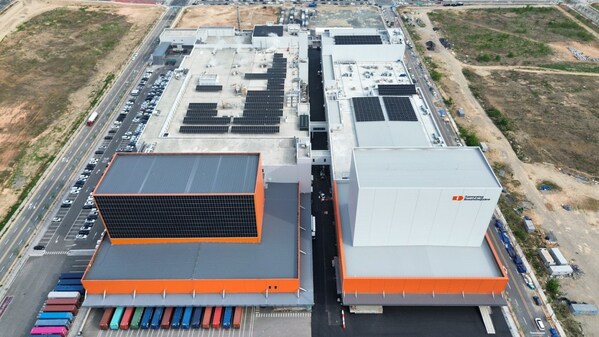Key Takeaways
- Samyang Foods has installed a rooftop solar power system at its Miryang plant, generating over 986 MWh of clean electricity annually.
- The project supports Samyang’s carbon neutrality goals and is expected to reduce CO₂ emissions by 453 tonnes per year.
- This initiative aligns with South Korea’s renewable energy targets, aiming for 21.7% of the national energy mix by 2030.
Samyang Foods Launches Solar Energy Project at Miryang Plant
Samyang Foods Co., Ltd., a leading instant noodle producer in South Korea, has partnered with Peak Energy to install a rooftop solar power system at its Miryang production complex. This initiative aims to enhance sustainability and reduce energy costs while supporting the company’s carbon neutrality ambitions.
The solar power system comprises over 1,100 photovoltaic (PV) modules and is now operational, generating more than 986 MWh of clean electricity annually. This output meets approximately 7% of the Miryang facility’s total power demand and is projected to prevent around 453 tonnes of carbon dioxide emissions each year. By purchasing this solar electricity from Peak Energy, Samyang Foods will not only save on long-term energy expenses but also contribute to its carbon reduction strategy.
This project aligns with South Korea’s 11th Basic Plan for Long-Term Electricity Supply and Demand, targeting a significant boost to renewable energy contribution to 21.7% by 2030. The successful implementation of on-site renewable energy systems like this one allows industrial players to lower both operating costs and carbon footprints.
The Miryang complex, which includes two plants after the recent facility’s inauguration, serves as a vital hub for global exports. This solar project marks an important milestone in Samyang’s roadmap to achieving net-zero emissions by 2050.
Gavin Adda, CEO at Peak Energy, expressed pride in collaborating with Samyang Foods on this pioneering rooftop installation, highlighting its potential as a sustainable solution for industrial leaders across Asia. Jungsoo Kim, Vice Chairperson of Samyang Foods, remarked that the new facility exemplifies advanced production technology and environmental efficiency, significantly reducing the carbon footprint of each Buldak Ramen pack to around 0.3 kg of CO₂.
Established in 1961, Samyang Foods has transformed into a global food corporation with a wide range of products, including noodles, snacks, and specialty food items. The company is dedicated to expanding its production capabilities and reaching net-zero emissions by 2050, with exports accounting for approximately 77% of total sales in 2024.
Peak Energy, headquartered in Singapore, specializes in developing, owning, and operating renewable energy projects throughout Asia. The company’s diverse business models have empowered numerous businesses with clean and cost-effective energy solutions.
The content above is a summary. For more details, see the source article.















